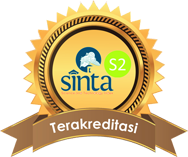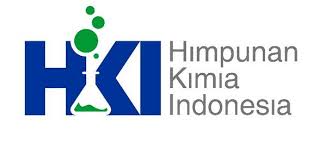Developing E-module on the Topic of Integrated Addictive Substances with Islamic Values
DOI:
https://doi.org/10.15575/jtk.v6i1.9802Keywords:
addictive substances topic, e-module, integrated Islamic valueAbstract
References
Ainiyah, N. (2013). Pembentukan karakter melalui pendidikan agama Islam. Jurnal Al Ulum,13(1), 25–38. Retrieved from http://www.journal.iaingorontalo.ac.id/index.php/au/article/view/179
Aji, W., Dewi, F., Kristen, U., & Wacana, S. (2020). Dampak Covid-19 terhadap implementasi pembelajaran daring di sekolah dasar [COVID-19 impact on the implementation of online learning in primary schools]. Edukatif. Jurnal Ilmu Pendidikan, 2(1), 55–61. https://doi.org/10.31004/edukatif.v2i1.89
Amanda, M., Humaedi, S., & Santoso, M. (2017). Penyalahgunaan narkoba di kalangan remaja (adolescent substance abuse). Journal UNPAD, 4(2), 339–345. https://doi.org/10.24198/jppm.v4i2.14392
Arikunto. (2013). Prosedur penelitian: Suatu pendekatan praktik. Jakarta: PT Rineka Cipta.
Astuti, I. A., Sumarni, R. A., & Saraswati, D. L. (2017). Pengembangan media pembelajaran fisika mobile learning berbasis android. Jurnal Penelitian & Pengembangan Pendidikan Fisika, 3(1), 57–62. https://doi.org/10.21009/1.03108
Bele, F., & Made, D. (2018). Inovasi pembelajaran elektronik dan tantangan guru abad 21. Journal Penelitian dan Pengkajian Ilmu Pendidikan 2(1), 10–18. https://doi.org/10.36312/e-saintika.v2i1.79
Boisandi. (2019). Pengembangan modul analisis rangkaian listrik berbasis inkuiri. Prosiding Seminar Nasional Pendidikan MIPA dan Teknologi, 1(1) 245. Retrieved from https://journal.ikippgriptk.ac.id/index.php/snpmt2/article/view/1380
Ditama, V., Saputro, S., & S, A. N. C. (2015). Pengembangan multimedia interaktif dengan menggunakan program adobe flash untuk pembelajaran kimia materi hidrolisis garam SMA kelas XI. Jurnal Pendidikan Kimia, 4(2), 23–31. Retrieved from https://jurnal.fkip.uns.ac.id/index.php/kimia/article/view/5669
Faridah, F., & Atakari, E. R. (2018). Hubungan pola asuh orang tua dengan penggunaan narkotika, psikotropika dan zat adiktif lainnya (napza) pada remaja. Jurnal Kebidanan, 8(2), 138–142. Retrieved from https://scholar.archive.org/work/ib72pewlvzfp3kbnqa4hh2cyae/access/wayback/http://jhmb.ac.id/index.php/jhmb/article/download/5/5
Gunawan, I. (2014). Pedagogi dan teknologi dalam e-learning. Jurnal Ilmiah Pendidikan Fisika Al-Biruni, 3(2), 16–23. https://doi.org/10.24042/jpifalbiruni.v3i2.70
Handoyono, N., Suparmin, & Nugroho, H. (2020). Pengembangan e-modul berbasis lectora pada pembelajaran sistem REM. Jurnal Pendidikan Teknologi dan Kejuruan, 17(2), 156–165. http://dx.doi.org/10.23887/jptk-undiksha.v17i2.24380
Hanif, H., Ibrohim, I., & Rohman, F. (2016). Pengembangan perangkat pembelajaran biologi materi plantae berbasis inkuiri terbimbing terintegrasi nilai islam untuk meningkatkan pemahaman konsep siswa SMA. Jurnal Pendidikan: Teori, Penelitian, dan Pengembangan, 1(11), 2163–2171. http://dx.doi.org/10.17977/jp.v1i11.8042
Herrington, J., et al. (2007). Design based research and doctoral students: guidelines for preparing adissertation proposal. Proceedings of World Conferenceon Educational Multimedia, Hypermedia and Telecommunications, 4089–4097. Retrieved from https://www.learntechlib.org/p/25967/
Kurniawati, E. F. (2020). Pengimplementasian e-modul etnokonstruktivisme terhadap motivasi belajar peserta didik kelas V sekolah dasar. Jurnal Penelitian Ilmu Pendidikan, 13(1), 10–21. https://doi.org/10.21831/jpipfip.v13i1.26589
Mapicayanti, D., Jamaludin, & Fathoni, A. (2018). Perancangan media pembelajaran berbasis video tutorial mendesai jaringan lokal/LAN kelas X TKJ. Jurnal Pendidikan Informatika, 2(2), 59–65. Retrieved from https://e-journal.hamzanwadi.ac.id/index.php/edumatic/article/view/913
Nurlila, R. U., & La Fua, J. (2017). Penyalahgunaan zat adiktif pada siswa kelas viii di sekolah menengah pertama negeri 05 kota Kendari. Jurnal Al-Ta’dib, 10(1), 73–90. https://doi.org/10.31332/ATDB.V10I1.553
Resyta, A., Melati, H. M.,& Hadi, L. M. (2015) Pengembangan media chembo (chemistry board) materi zat adiktif dan psikotropika siswa kelas VIII SMP. Jurnal Pendidikan dan Pembelajaran Katulistiwa. Retrieved from https://jurnal.untan.ac.id/index.php/jpdpb/article/view/11306
Perkasa, M., Annafi, N., & Putri, M. (2018). Penerapan pembelajaran kimia berbasis lingkungan melalui model project based learning untuk meningkatkan sikap peduli lingkungan mahasiswa. Prosiding Seminar Nasional, 296–300. https://doi.org/10.31219/osf.io/z6eju
Prawesti, R. A., Lutfi, A., & Suprapro, N. (2013). Uji coba pembelajaran IPA terpadu dengan LKS berorientasi guided discovery untuk melatih keterampilan berpikir ilmiah pada tema es lilin. PENSA: E-Jurnal Pendidikan Sains, 1(2), 35–41. Retrieved from https://ejournal.unesa.ac.id/index.php/pensa/article/view/2217
Purnama, B. E., Yuniati, N., & Nugroho, G. K. (2011). Pembuatan media pembelajaran interaktif ilmu pengetahuan alam pada Sekolah Dasar Negeri Kroyo 1 Sragen. 3(4), 25–29. Retrieved from https://ijns.org/journal/index.php/speed/article/view/866/854
Rahmah, S. Z. (2017). Pengembangan modul berbasis SETS (science, environment, technology, society) terintegrasi nilai islam di SMAI Surabaya pada materi Ikatan Kimia. Jurnal Pendidikan, 2, 57–62. http://dx.doi.org/10.26740/jp.v2n1.p70-76
Sholihah, Q. (2015). Efektivitas program P4Gn terhadap pencegahan penyalahgunaan napza. Jurnal Kesehatan Masyarakat, 10(2), 153. https://doi.org/10.15294/kemas.v10i2.3376
Subarkah, C. Z., Rahmawati, R., & Dalli, A. (2016). Value in electrochemistry learning. Jurnal Pendidikan Islam The Faculty of Tarbiyah and Teacher Training State Islamic University (UIN) Sunan Gunung Djati Bandung, 2. Retrieved from https://www.researchgate.net/profile/Ferli-Septi-Irwansyah/publication/327770698_Developing_E-Module_Based_on_Islamic_Values/links/5bc35582a6fdcc2c91fbe302/Developing-E-Module-Based-on-Islamic-Values.pdf
Sugihartini, N., Jayanta, N. L. (2017). Pengembangan e-module mata kuliah startegi pembelajaran. Pendidikan Teknologi dan Kejuruan, 14(2), 221–230. http://dx.doi.org/10.23887/jptk-undiksha.v14i2.11830
Sugiyono. (2017). Metode penelitian pendidikan (pendekatan kuantitatif, kualitatif, dan R&D). Bandung: Alfabeta.
Tes, A. A., Puspitawati, T., & Marlinawati, U. (2017). Fenomena perilaku mengkonsumsi minuman keras mahasiswa program studi S-1 kesehatan masyarakat Universitas Respati Yogyakarta. Jurnal Formil (Forum Ilmiah) Kesmas Respati, 2(1), 27–28. https://doi.org/10.35842/formil.v2i1.59
Turgut, H. (2016). Pre-service science teachers’ perceptions about relationship between religion and science on the context of their worldviews. International Online Journal of Educational Sciences, 8(3), 2016. https://doi.org/10.15345/iojes.2016.03.014
Unayah, N., & Sabarisman, M. (2016). Fenomena kenakalan remaja dan kriminalitas. Sosio Informa, 1(2).
Uno, H. B. (2012). Model pembelajaran. Jakarta: Bumi Aksara.
Wati, H. P., Karyanto, P., Dwiastuti, S. R. I., & Sri, D. (2016). Upaya meningkatkan keterampilan proses sains dan mengurangi miskonsepsi melalui penerapan e-module berbasis problem-based learning kelas X MI 2 SMA Batik 1 Surakarta. Bio-Pedagogi, 5(4). https://doi.org/10.20961/bio-pedagogi.v5i1.5402
Wijaya, I., & Firmansyah, D. (2018). Perancangan dan pembuatan media pembelajaran berbasis android mata pelajaran teknologi perkantoran (studi kasus kelas X OTP SMK Negeri 3 Padang). Pendidikan Teknologi Informasi, 5(2), 9–20. Retrieved from http://lppm.upiyptk.ac.id/ojsupi/index.php/pti/article/view/130
Zain, Z., & Vebrianto, R. (2017). Integrasi keilmuan sains dan Islam dalam proses pembelajaran rumpun IPA. Jurnal Program Studi Pendidikan Kimia, 18–19. Retrieved from http://ejournal.uin-suska.ac.id/index.php/SNTIKI/article/view/3198
Zuchdi, D. (2011). Pendidikan karakter dalam perspektif teori dan praktik . Yogyakarta: UNY Press.
Zulvianda, H., Hanum, L., & Nazar, M. (2013). Pengembangan e-module kimia SMA pada materi larutan elektrolit dan non elektrolit. Jurnal Ilmiah Mahasiswa Pendidikan Kimia (JIMPK), 1(3), 9–16. Retrieved from http://www.jim.unsyiah.ac.id/pendidikan-kimia/article/view/1295
Downloads
Published
How to Cite
Issue
Section
Citation Check
License
Authors who publish with this journal agree to the following terms:
- Authors retain copyright and grant the journal right of first publication with the work simultaneously licensed under a Creative Commons Attribution-ShareAlike that allows others to share the work with an acknowledgement of the work's authorship and initial publication in this journal.
- Authors are able to enter into separate, additional contractual arrangements for the non-exclusive distribution of the journal's published version of the work (e.g., post it to an institutional repository or publish it in a book), with an acknowledgement of its initial publication in this journal.
- Authors are permitted and encouraged to post their work online (e.g., in institutional repositories or on their website) prior to and during the submission process, as it can lead to productive exchanges, as well as earlier and greater citation of published work (See The Effect of Open Access).









